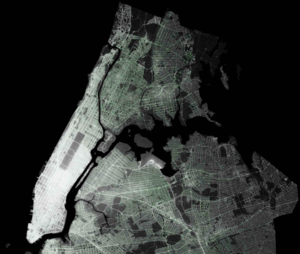Data-Driven Rebalancing of Vehicles for Ridesharing
How do we make use of data to rebalance vehicles to meet passenger demand?
In ridesharing, an important metric of service quality is the average wait time of passengers. The key to reducing the average wait time is to dynamically rebalance the vehicles to match passenger demand at different locations. The goal of this research is to study how to make use of predictions of future passenger demand from historical data in order to improve the service quality of automated ridesharing. We have developed a data-driven online scheduling algorithm using the theory of distributionally robust optimization, which allows us to address the uncertainties in demand prediction. We also showed that the robust optimization problem can be converted to an equivalent form for which numerically efficient solutions are available. We evaluate the performance of the data-driven vehicle balancing framework based on four years of taxi trip data from New York City.

- Fei Miao, Shuo Han, Shan Lin, Qian Wang, John Stankovic, Abdeltawab Hendawi, Desheng Zhang, Tian He, and George J. Pappas, “Data-Driven Robust Taxi Dispatch under Demand Uncertainties,” IEEE Transactions on Control Systems Technology, vol. 27, no. 1, pp. 175–191, Jan. 2019. [pdf]
- Fei Miao, Shuo Han, Abdeltawab Hendawi, Mohamed E. Khalefa, John A. Stankovic, and George J. Pappas, “Data-driven distributionally robust vehicle balancing with dynamic region partition,” in ACM/IEEE International Conference on Cyber-Physical Systems, 2017.
- Fei Miao, Shuo Han, Shan Lin, John A. Stankovic, Desheng Zhang, Sirajum Munir, Hua Huang, Tian He, and George J. Pappas, “Taxi Dispatch with Real-Time Sensing Data in Metropolitan Areas: A Receding Horizon Control Approach,” IEEE Transactions on Automation Science and Engineering, vol. 13, no. 2, pp. 463–478, 2016. [pdf]
- Fei Miao, Shuo Han, Shan Lin, and George J. Pappas, “Taxi dispatch under model uncertainties,” in IEEE Conference on Decision and Control, 2015. [pdf]